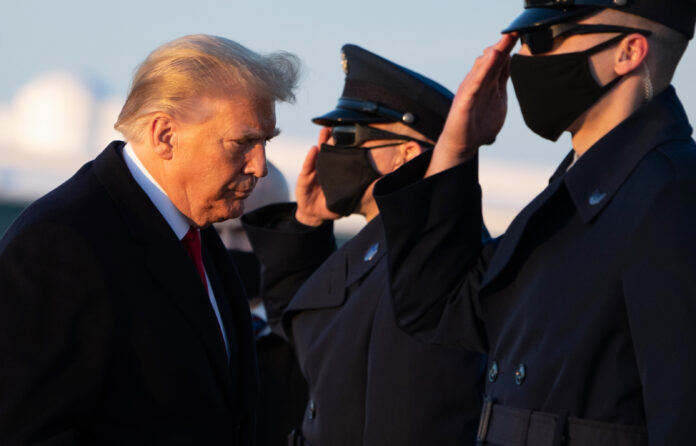A group of retired U.S. military generals have come forward to oppose former President Donald Trump’s claim of presidential immunity, warning that it would “inject chaos” into military operations.
Among the four criminal cases that Trump is currently facing, the most significant according to many observers is the federal case brought by the Department of Justice (DOJ) and special counsel Jack Smith. In the DOJ’s probe, Trump is accused of attempting to overturn the results of the 2020 presidential election that led to the U.S. Capitol riot on January 6, 2021, after losing to Joe Biden. The former president has claimed innocence and has pleaded not guilty to the charges.
In an effort to stave off the case or to merely delay it further, Trump, the presumed 2024 GOP presidential nominee, claimed that he had broad immunity from criminal prosecutions for anything done while he was president, including his efforts surrounding the last election. This argument has been widely condemned by legal experts and was denied by a Washington, D.C., appeals court, but will now be ruled upon by the U.S. Supreme Court. Oral arguments in the matter will begin on April 25.
On Monday, a filing was submitted to the Supreme Court in which a long list of retired generals from the U.S. Army, Navy, and Air Force, who served under each president from John F. Kennedy to Trump, further condemned the former president’s immunity claims.
Saul Loeb/AFP via Getty Images
“[The former generals] are deeply interested in this case because presidential immunity from criminal prosecution would threaten the military’s role in American society, our nation’s constitutional order, and our national security,” the brief read. “It also would have profoundly negative effects on military service members, who answer to the orders of the President as Commander-in-Chief.”
The filing also warned that such presidential immunity would disrupt the “rule of law” that is “critical to the military’s mission and to the people’s trust in the armed forces,” and “would fly in the face” of the duty of military members to disobey unlawful orders.
“Immunizing the Commander-in-Chief from criminal prosecution, as Petitioner argues for here, would fly in the face of that duty, creating the likelihood that service members will be placed in the impossible position of having to choose between following their Commander-in-Chief and obeying the laws enacted by Congress,” the filing reads.
It continues: “And it would threaten the unity of the chain of command, from civilian leaders to military leaders down to units and service members, upon which the proper functioning of the military depends. Not only does Petitioner’s approach threaten to inject chaos into military operations, it also threatens to damage—potentially irreparably—the public’s trust in the military and the willingness of recruits to join the armed forces.”
Newsweek reached out to Trump’s office via email on Monday afternoon for comment.
Former federal prosecutor Andrew Weissmann said in January on MSNBC that while he doesn’t believe the courts will grant Trump presidential immunity, he could instead use pardon power if he wins reelection this year.
“I don’t think that the courts are going to grant immunity…but just remember, Donald Trump becomes president, he will use his pardon power to, in effect, do what he is saying he would do if he can’t get the courts to give him total immunity,” Weissmann, who served as lead prosecutor in special counsel Robert Mueller’s investigation of Trump’s 2016 campaign, said. “Which is that he can use the pardon power to pardon people who commit crimes, including crimes for him, as he has said with respect to the January 6 people who he is now terming that they were hostages and not actually criminal defendants.”
Uncommon Knowledge
Newsweek is committed to challenging conventional wisdom and finding connections in the search for common ground.
Newsweek is committed to challenging conventional wisdom and finding connections in the search for common ground.


